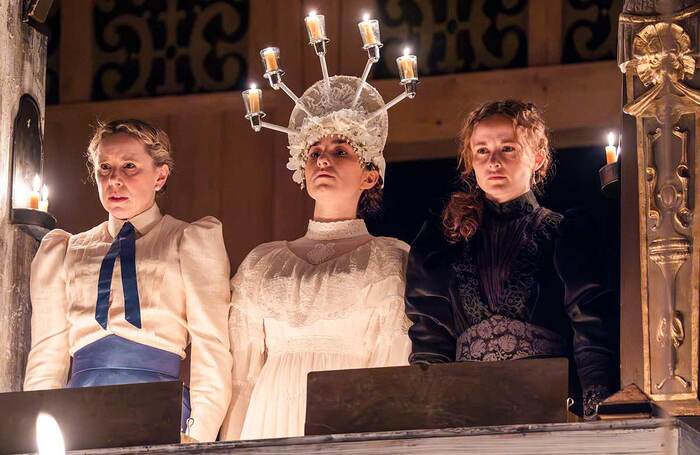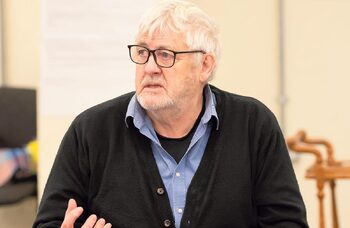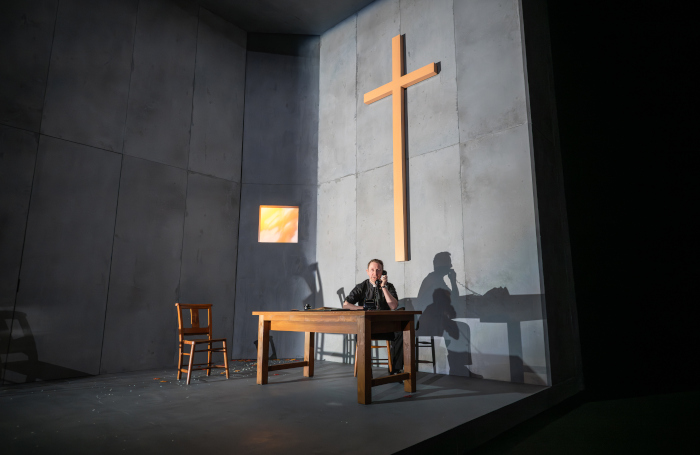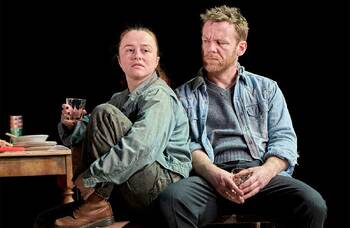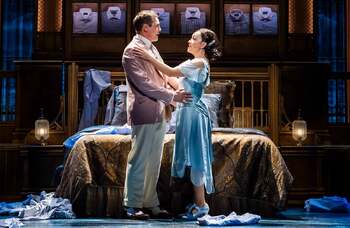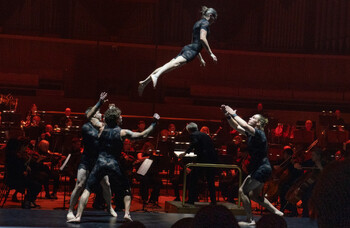Three Sisters review
Profound, playful performances bring refreshing liveliness to Rory Mullarkey’s new translation of Chekhov’s bitter black comedy
Leaning fully into the absurd humour embedded in Chekhov’s bleak classic, director Caroline Steinbeis’ fascinatingly heightened interpretation confidently walks a line between farce and melodrama. In a vivid new translation from playwright Rory Mullarkey, the familiar story of thwarted dreams and woeful romantic misjudgements feels fresh, full of sparkling, dark humour. Here, every portentous non sequitur, every blunt truth blurted out, becomes a punchline, inviting us to join in the characters’ strained laughter.
There’s a trio of superb performances from the titular sisters. Michelle Terry tackles schoolteacher Olga, learning to deaden her profoundly felt emotions to survive the grinding years. She begins the play bursting with desperate, brittle cheeriness, but ends up numb, speaking blankly in the face of tragedy. Shannon Tarbet’s middle sister Masha affects melodramatic melancholy, but flashes of exultant passion keep slipping through. When she experiences true loneliness for the first time, she is shattered, wailing with desolating intensity. And Ruby Thompson’s Irina remains likeable, despite her naivety and languor, animatedly rhapsodising about an imagined future in Moscow that she is far too sheltered ever to begin to actualise.
Continues...
Elsewhere in a strong ensemble, Michael Abubakar generates pathos as determined but doomed Tuzenbach, clinging to his modest ambitions and unrequited love, but never quite achieving what he wants.
Oli Townsend’s set is gorgeously Gothic, nailing the fading luxury of the family estate. Streaked whitewash may be peeling off the splintering planks of the stage, but fragile, sculpted golden trees still cling to the walls. Lavish sprays of artificial flowers add touches of delicate colour, while a floral display high above spells out Irina’s name, giving proceedings a more funereal than celebratory feel.
Composer Oliver Vibrans creates a sparse soundscape, performed live by the company. Actors sing bittersweet folk songs, idly strumming balalaikas or plinking with deliberate half-heartedness at a piano. The distant, bass rumble of an ageing boiler creeps in at key moments, reminding us of the slow decay eating away at the play’s world and the characters’ resolve.
Steinbeis’ bold staging pushes the possibilities of the intimate space, playing with the light in satisfyingly surprising ways. Candles are methodically snuffed out as the characters’ faint hopes fade, until we are left in near total darkness. Then, for the final scene – set outdoors in the estate’s grounds – the doors are flung wide, letting in cool, aqua-tinted artificial light. Figures move beyond the doorways: soldiers stride purposefully; Stuart Thompson’s befuddled elder brother Andrei paces, soothing his newborn baby. Gunshots and cheery military music drift in from somewhere outside the auditorium. Fittingly for the play’s themes, all the action seems to be taking place somewhere else, and the characters can only look on, helpless.
More Reviews
More Reviews
Recommended for you
Most Read
Across The Stage this weekYour subscription helps ensure our journalism can continue
Invest in The Stage today with a subscription starting at just £7.99
